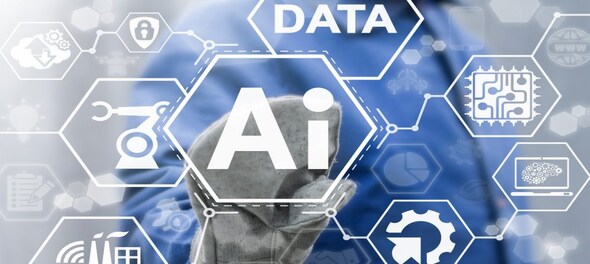
The history of artificial intelligence (AI) can be traced back to ancient times when humans attempted to create mechanical devices that could mimic human intelligence. However, modern AI is generally considered to have originated in the mid-20th century, with the development of electronic computers and the mathematical and logical theories that underlie them.
In the 1950s and 1960s, pioneers such as John McCarthy, Marvin Minsky, and Claude Shannon made significant advances in AI research, laying the groundwork for the development of expert systems, natural language processing, and machine learning. One of the earliest and most famous AI projects was the General Problem Solver (GPS), developed by McCarthy and his colleagues in 1957.
In the 1970s and 1980s, the field of AI experienced a period of disillusionment, known as the - AI winter - as progress slowed and funding dried up. However, in the 1990s, advances in neural networks, genetic algorithms, and other machine learning techniques led to a renewed interest in AI and a new wave of innovation.
Since then, AI has continued to evolve rapidly, with breakthroughs in areas such as computer vision, natural language processing, and robotics. Today, AI is used in a wide range of applications, from image recognition and speech recognition to self-driving cars and personalised medicine. With the advent of deep learning and other advanced AI techniques, the field is poised for further breakthroughs in the coming years.
Artificial intelligence (AI) has the potential to revolutionise society in many positive ways and change how humans live, but it also presents significant ethical challenges that need to be addressed.
Challenges
Worries for policy makers
Regulating artificial intelligence (AI) presents a unique challenge for regulators due to the complexity of the technology and its potential impact on society. The pace of AI innovation and commercialisation is so rapid, that expecting policy makers and regulators to keep pace with technology aspects of it is a high expectation. This could either bring regulations that are too rigid and stops Innovation or pushes them underground, or just does not address the worrisome part of AI. AI systems can be complex and difficult to understand, which can make it hard for regulators to determine how decisions are being made and to identify potential issues or risks.
Regulators need to ensure that AI systems are designed and used in a way that protects personal data and respects individuals' privacy rights. Regulators can play a key role in developing regulations that require companies to be transparent about the data they are collecting and how they are using it. They can also require companies to obtain consent from individuals before collecting their data, and to give individuals the ability to control their own data. AI systems can perpetuate bias and discrimination if they are trained on biassed or discriminatory data.
Regulators need to ensure that AI systems are designed and used in a way that is fair and unbiased. Regulators need to ensure that there is accountability for the decisions made by AI systems and that there are mechanisms in place to address any issues or concerns that arise. Regulators can play a role in addressing bias by requiring companies to conduct bias audits of their AI systems, and by requiring them to take steps to address any biases that are identified.
Despite these obstacles, there is no doubt that AI will be much larger in our daily lives. But it is the right time for governments, industries, civil society to discuss the guardrail for AI. This is essential to ensure that the value system of human society does not worsen in the name of having easier lives with AI. The outcomes of AI could have lasting impact on human rights, society, human interaction with each other and nature. The development of AI is a global issue, and that it will require cooperation between governments and other stakeholders to ensure that it is developed and used in a responsible manner.
—The author, Dr. Srinath Sridharan, is Author, Policy Researcher & Corporate Advisor. The views expressed are personal.
Read his previous articles here
(Edited by : C H Unnikrishnan)
Check out our in-depth Market Coverage, Business News & get real-time Stock Market Updates on CNBC-TV18. Also, Watch our channels CNBC-TV18, CNBC Awaaz and CNBC Bajar Live on-the-go!


Odisha: Fight of heavyweights in Sambalpur where farmers, weavers hold the key
May 17, 2024 10:22 AM
Lok Sabha Election 2024: What rural Delhi wants
May 16, 2024 10:10 PM
Over 50 onion farmers detained in Nashik ahead of PM Modi's visit
May 16, 2024 11:14 AM
Why Google CEO is cautiously optimistic about the election year
May 16, 2024 9:51 AM

